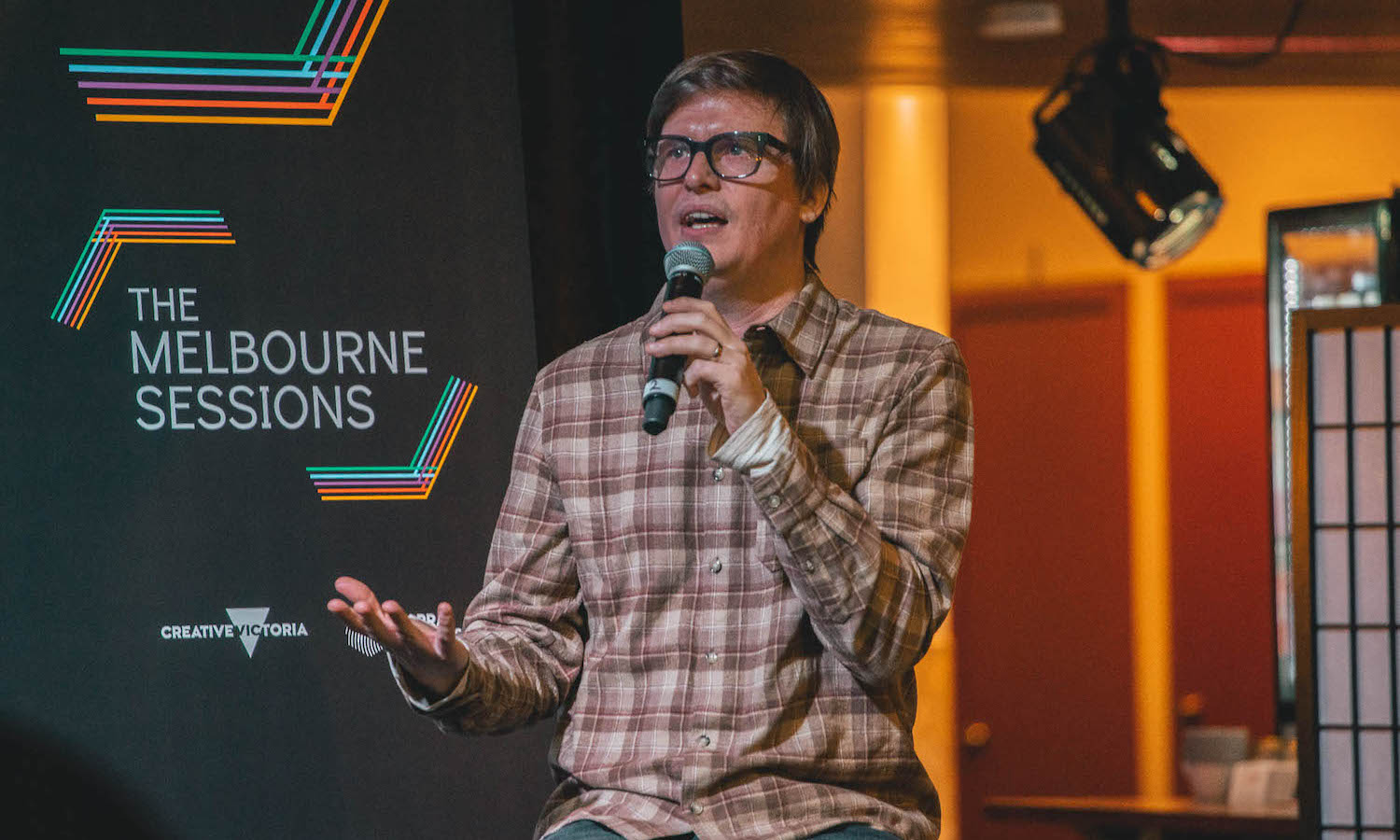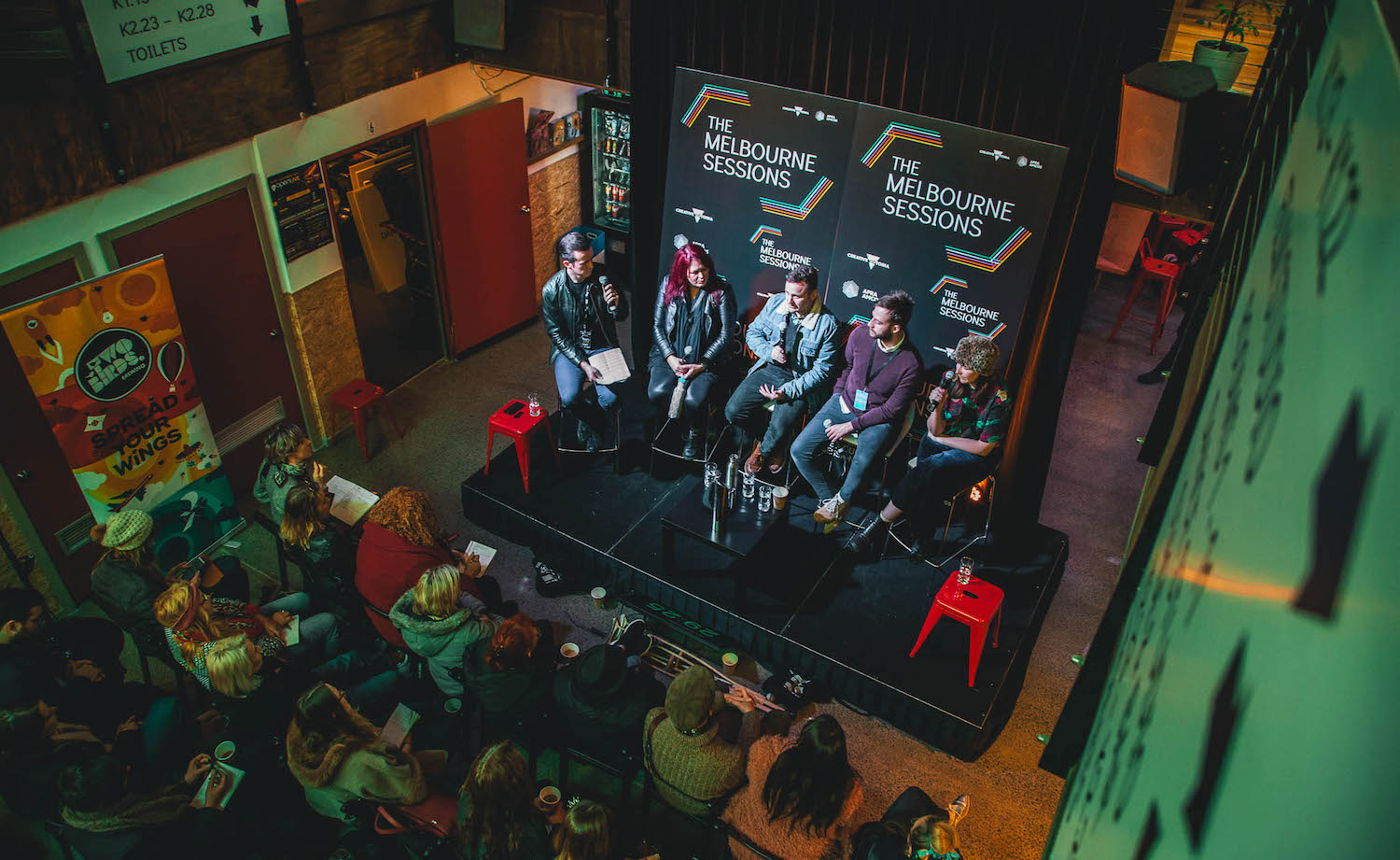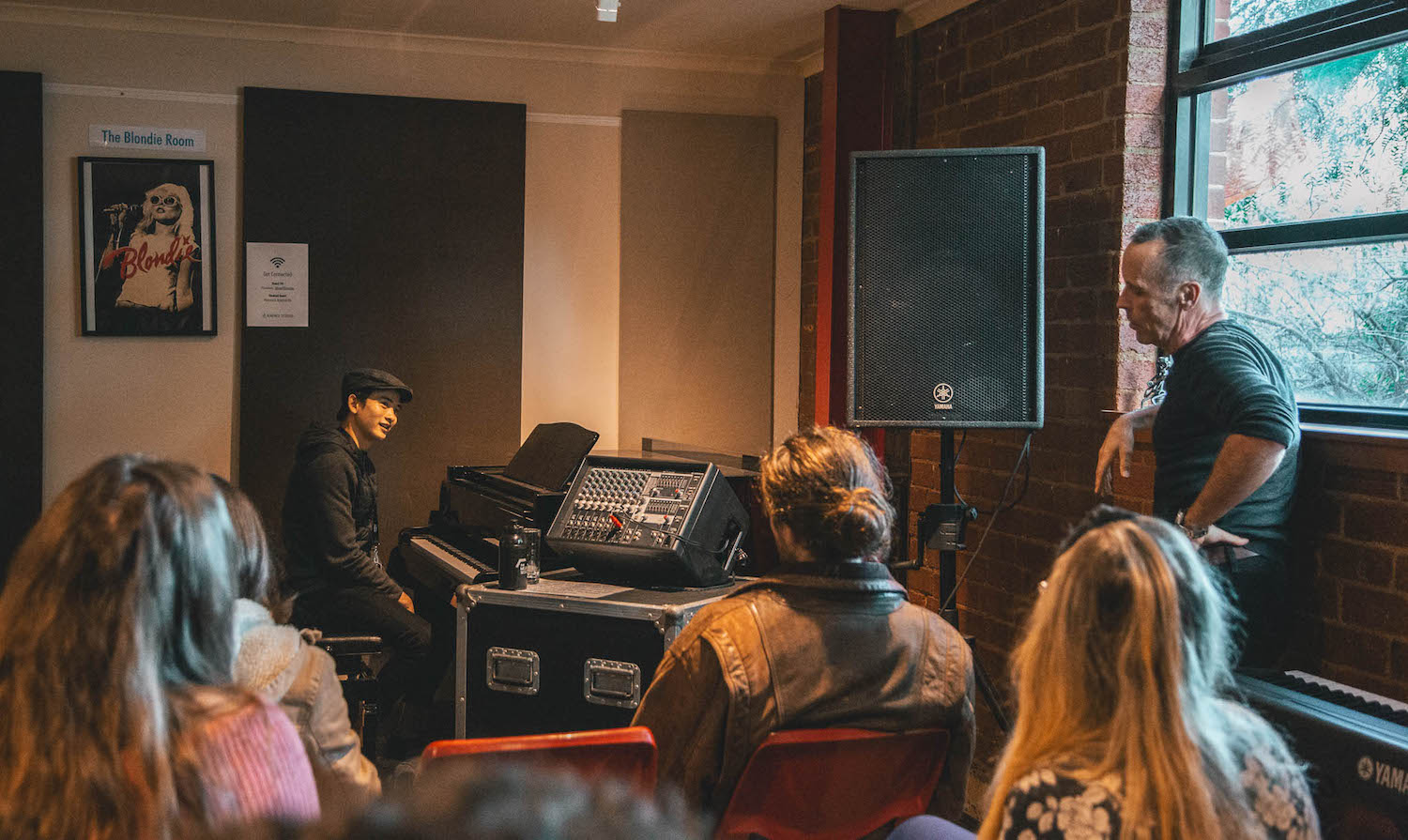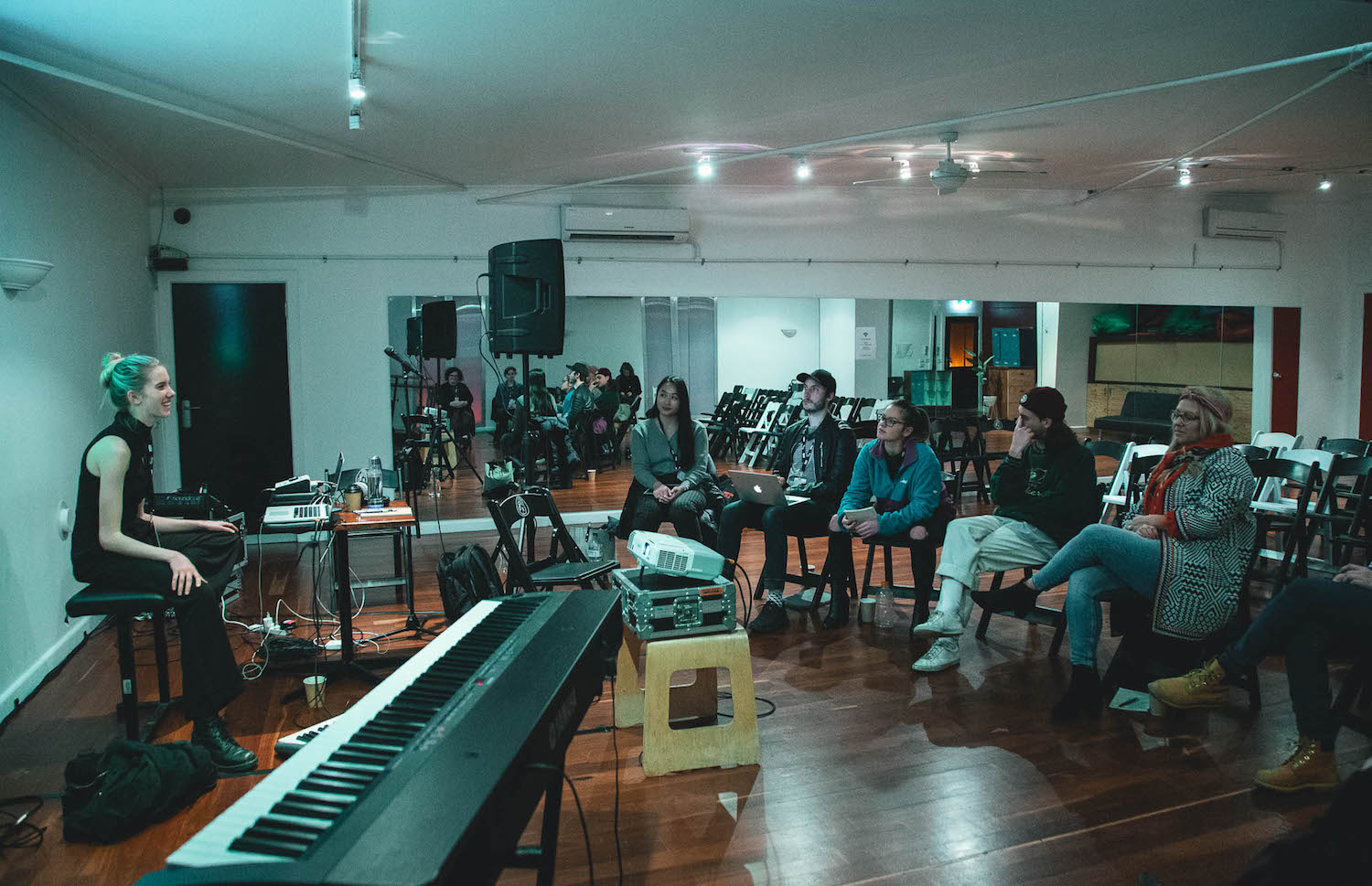Songwriting, singles & studio set-ups: 9 lessons from APRA’s Melbourne Sessions

For the second year in a row, over 200 songwriters and composers flocked to Kindred Studios in Yarraville for The Melbourne Sessions, a full day dedicated to songcraft, skills development and connecting with other creatives.
Presented by APRA AMCOS with Creative Victoria, it was a sold-out affair with a program comprised of an insightful keynote with American producer, songwriter and former Death Cab for Cutie member Chris Walla, a music business panel, and a range of genre-focused masterclasses and hands-on workshops.
Attendees were tasked with writing exercises, received feedback on their songs from the likes of Mark Seymour, and spoke openly about the challenges of putting your music out there.
If you didn’t make it, here is the abridged version of what we learned at The Melbourne Sessions.
Fostering a hit
You can’t force a hit, according to Chris Walla, who has shaped the sound of some of indie music’s most successful albums, but you can work to create an environment that fosters it. “All the moments that have really worked, that have been transcendent, are moments when trying to make a hit is the furthest thing from people’s minds. It’s when people feel safe, supported, engaged and at the centre of what’s happening.”
Home studio set-up: The basics
Moderator Jan Skubiszewski asked Walla what the basic home studio set-up requires. Walla advises: a microphone, a computer, an interface, headphones and a program. What program is the go to these days? “I love Pro Tools, but it’s a monster. It’s conducive to editing everything one it’s written and arranged.” The room was equally split between Logic and Ableton Live users, which makes sense as each “suits different approaches and writing styles,” Walla said.

Band agreements should come first, not last
UNIFIED Music Group’s Matthew Rogers, delivered a home truth at the music business panel: don’t wait until a band member leaves to draw up a band agreement. Do it at the formation of a band.
The Sandwich Technique
In Jan Skubiszewski’s production masterclass, he emphasised how important it is to voice your opinions when writing and collaborating and suggested using the ‘sandwich technique’ with positive reinforcement and enthusiasm as the bread to the trickier, meatier points.
The art of the single release
Cash Savage and Jen Cloher talked music business and release strategy in a masterclass. In discussing the roll-out of a series of singles, Cloher pointed out that you need to monitor the engagement levels: “Are listeners becoming intrigued or losing interest with successive singles?” And when releasing a new single, you need to have a visual element to accompany it (video, lyrics, imagery).

A tip for the composers: Keep it really real
Screen composer Amy Bastow unpacked the tools of contemporary composing. “Think of your midi instruments as instruments.” In other words, don’t have them do what they can’t do naturally. A flute plays one note at a time, so don’t give it superpowers to do more than that.
Songwriting is a daily practice
In his songwriting workshop, Jake Mason talked about writing as a daily exercise, not something to do when inspiration strikes. Commit to an hour a day, and try to schedule in a co-write once a week.
Woodes writing inspo
On a recent writing trip, Woodes opened each fresh document with one line at the top of the page: Don’t say you’re sorry.

“Unshackle yourself from the ideas you are stuck to”
That was a sentiment that Alexander Gow shared at his songwriting workshop. Listen to some David Byrne or the B-52s when you’re stuck. Gow also looked at how language and specifically using commands in lyrics can make for a more immediate song.






























